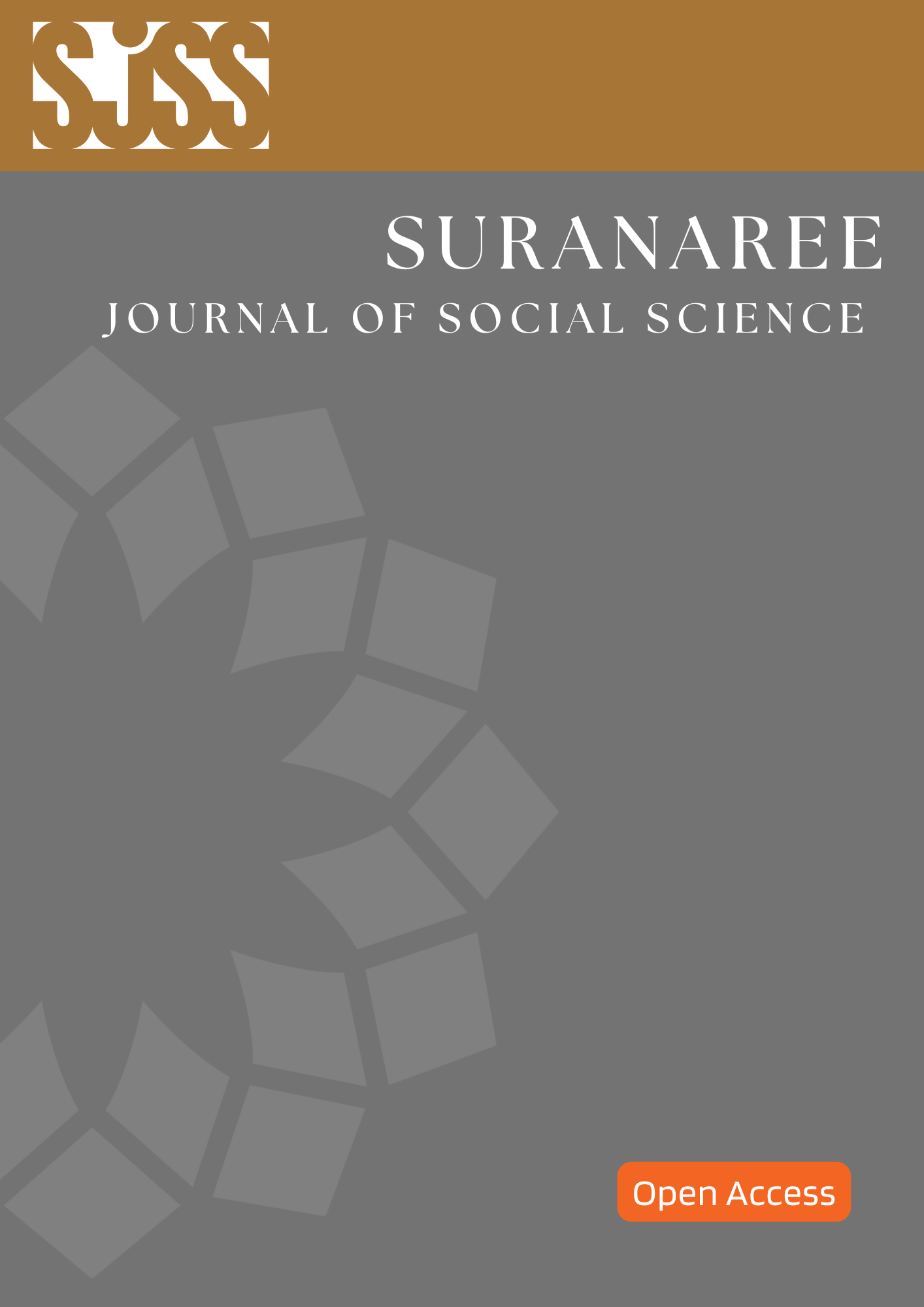Willingness to Accept Compensation for a Waste Power Plant: Case Study of Tumbol Dong Daeng, Chaturaphak Phiman District, Roi Et
Main Article Content
Abstract
The objective of this study was to evaluate a community's willingness to accept compensation from the construction of a waste-to-energy plant. This study employed the contingent valuation method to evaluate the willingness to accept compensation in hypothetical situations. Data were collected from samples in Tumbon Dong-Dang, Chaturaphak Phiman district, Roi-et province by a survey of double-bounded choice with closed-end questions. The data were estimated in the form of Log-likelihood function to verify the statistical relationship between variables. The estimation represented two cases of samples: residents in agricultural areas near the plant, and residents in housing areas in which garbage trucks frequently travel. The results revealed that for residents near the plant, age and years of education anticipated the effect of the plant on the household, and knowledge about the power plant statistically determined the level of the compensation opportunity. Samples were willing to accept compensation at 75,000 baht/household. On the other hand, factors determining the compensation opportunity of residents in the truck traveling areas were positive attitude towards the power plant and the need of need for infrastructure. They were willing to accept compensation at 14,250 baht/household. This study suggests that policy makers should consider this valuation approach before allocating the budget for compensation in the area the power plant is to be constructed.
Article Details

This work is licensed under a Creative Commons Attribution-NonCommercial-NoDerivatives 4.0 International License.
References
Anantadechochai, W., Saraithong, W., & Chancharoenchai, K. (2019). Willingness to Accept Compensation from ASEAN Highway 123 Kanchanaburi. (In Thai). In the 9th SMARTS academic conference, Srinakharinwirot University Prasarnmit Campus, Bangkok.
Detchuchai, J. (2014). The Impact of Perception and Attitude of Consumers toward Emotional Appeal in Life Insurance Television Commercial Advertisement on Their Purchasing Decision. (In Thai). M.S. thesis, Bangkok University, Thailand.
Dhatsuwan, J. (2007). Statistics and Analysis of Health Data. (In Thai). Chiang Mai: Faculty of Nursing, Chiang Mai University.
Hanemann, N.W. (1989). Welfare Evluations in Contingent Valuation Experimanets with Discrete Responser. American Journal of Agricultural Economics. 66(3): 332-341. https://doi.org/10.2307/1240800
Isarangkun Na Ayutthaya, A. (1999). Environmental Valuation: What It Is, How to Do It, And for Whom. Thammasat Journal of Economics. (In Thai). 16(4): 55-88.
Janekarnkit, P. (1995). Different Views: The Value of Willingness to Pay and Willingess to Accept. Thammasat Journal of Economics. (In Thai). 12: 211-221.
Kittinatthaphong, N. (2010). An Analysis of Willingness to Pay for Improvement of Air Quality in the Pollution Control Area of Rayong Province. Sukhothai Thammathirat Journal of Economics. (In Thai). 6(2): 1-18.
Nuchsawat, N. (2019). Farmer’s Willingness to Accept Compensation under Project for Management of Agriculture and Water Detention Area in the Lower Chao Phraya River Basin. (In Thai). Bangkok: King Prajadhipok's Institute.
Pollution Control Department. (2019). Summary of the Pollution Situation in Thailand in 2018. Ministry of Natural Resources and Environment.
Roi Et Public Relations Office. (2018, 31 January). Roi Et Province Continues to Drive Awareness and Understanding in Solid Waste Management Service. (In Thai). National News Bureau of Thailand.
Saaingern, T. (2001). Valuation of Community’s Willingness to Accept Landfill Site at Nong Han Subdistrict, San Sai District, Chiang Mai Province. (In Thai). M.S. thesis, Chiang Mai University, Thailand.
Sukaarom, R. (1998). The Hypothetical Method to Evaluate the Product Does Not Pass the Market. Digital Economic Archive. (In Thai). 16(4): 87-117.
Thailand Development Research Institute. (2000). Complete Report, Development Studies, Environmental Impact Analysis Economics. (In Thai). Bangkok: Thailand Development Research Institute.
Thawepatimakorn, A. & Seenprachawong, U. (2018). Willingness to Pay for Water Supply Services to Conserve and Restore Watershed Forests. Development Economic Review. (In Thai). 12(1): 107-133.
The Secretariat of the House of Representatives. (2019). Solid Waste Management in Thailand. (In Thai). Bangkok: 3rd Academic Division, The Secretariat of the House of Representatives.
Wanichbancha, K. (2009a). Multivariate Analysis. (In Thai). Bangkok: Dharmasarn Publishing.
Wanichbancha, K.(2009b). Advanced Statistical Analysis by SPSS for Windows. (In Thai). Bangkok: Dharmasarn Publishing.
Whattananarong, K. (2013, 15 July). Adoption Used as A "Belief Set" In Thai Society. Thairath online.


